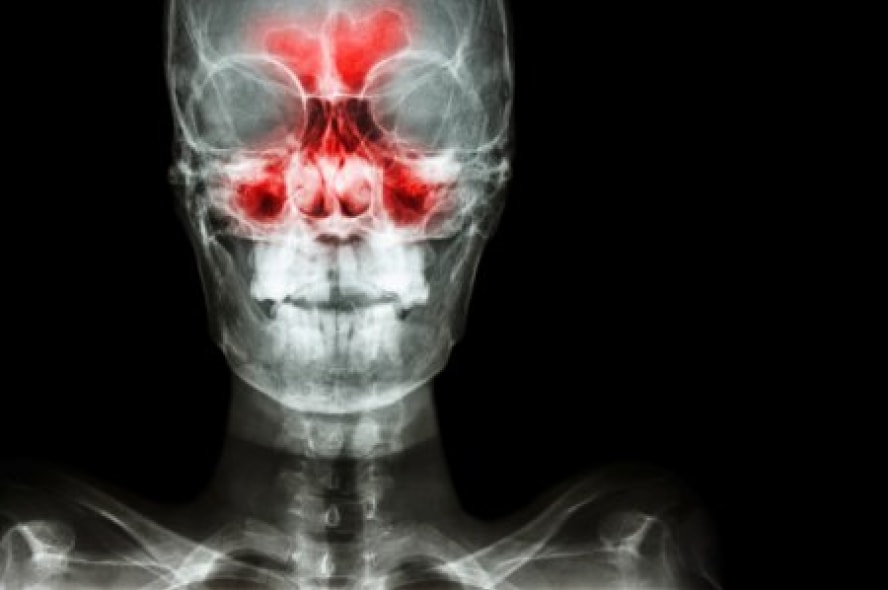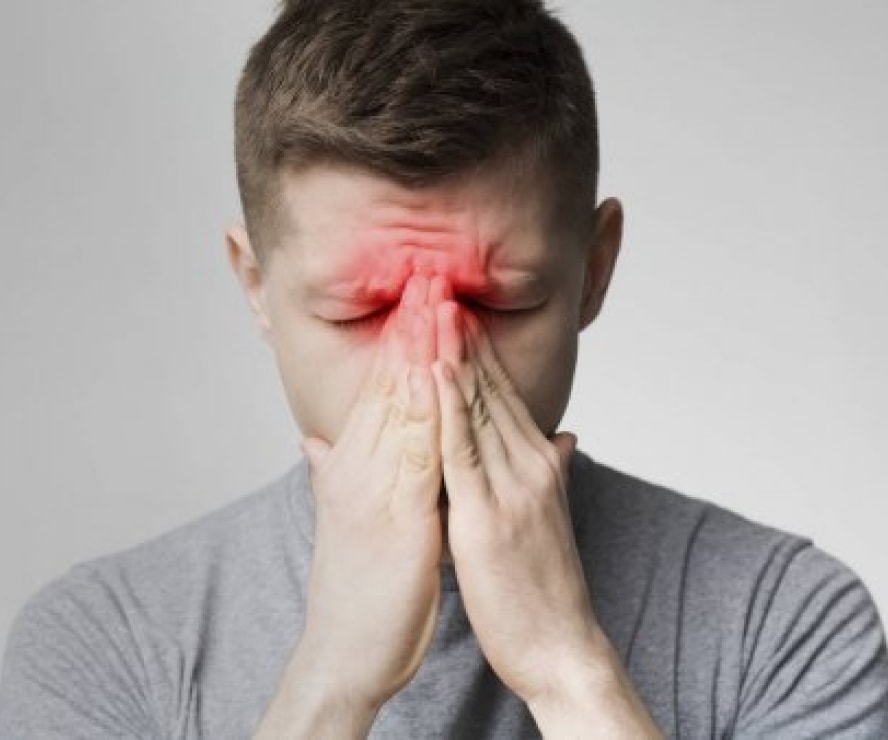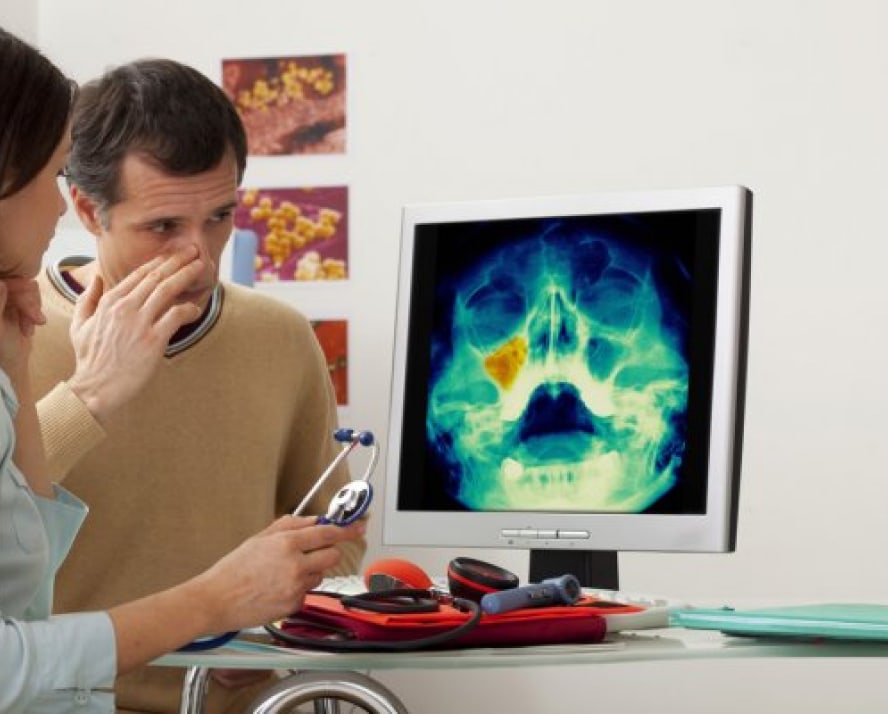Individuals who struggle with nasal congestion, cough, facial pressure/pain, purulent nasal drainage and headache may have rhinosinusitis, commonly termed sinusitis.
The sinuses are air spaces or holes in the face and head. They are lined with nasal mucosa but should be full of air. The passages that drain the sinuses are quite small and when something blocks these drainage pathways, infection can occur.
Obstruction of the nasal drainage pathways can cause both acute and chronic sinusitis. Acute sinusitis lasts less than four weeks and most cases begin with a common cold. While most cases resolve in their own, occasionally the sinuses can become secondarily infected with bacteria and need antibiotics. Chronic sinusitis lasts for 12 weeks or longer.
Symptoms
Sinusitis symptoms often develop after a viral infection or when there is ongoing allergic rhinitis disease. Symptoms include:
Nasal Congestion
Purulent nasal drainage
Facial pain
Cough
Fever
Toothache
Diagnosis
The allergist may perform allergy skin testing to identify what allergic triggers may be behind your chronic or recurrent sinus problems.

Nasal Diagnostics
Often times, imaging of the sinuses with a CAT scan or X-ray is indicated. Rarely, a referral for nasal endoscopy, using a small flexible camera to investigate the sinuses, may also be required.
Make an appointment with your doctor immediately if you have fever, pain or swelling of the face or eye, redness around the eye, severe headaches or a stiff neck. These could be signs of a deep seated or more severe infection.
Treatment
Acute Sinusitis
It is important to remember that almost 70% of people with acute sinusitis will recover without any prescription medications. If the cause is a bacterial infection, oral antibiotics can shorten the duration and reduce the severity of symptoms.
Other treatment strategies include:


Chronic Sinusitis
Most of the time, chronic sinusitis is not caused by bacterial infection, so using antibiotics to treat the condition usually does not help. Avoid activities or places that may aggravate your sinus symptoms, particularly if your symptoms are triggered by allergens.
Intranasal corticosteroid sprays (like fluticasone and mometasone) may be used but should be prescribed under the care of a doctor. If nasal swabs or cultures show any fungus, your doctor may prescribe antifungal medication.
If you have been diagnosed with allergies, treating those allergies by avoiding your triggers and using medications and/or allergy shots can help prevent recurrences of sinusitis. Environmental control measures to help avoid indoor triggers like dust, mold and pet dander are very important in treating your sinus disease as well. Controlling your allergies can help prevent the need for surgery or prevent recurrence of sinusitis after surgery.
Treating sinusitis can often require the specialty of an Ear, Nose and Throat physician to discuss endoscopic sinus surgery as an option. The decision to have sinus surgery is complex and should weigh many factors. Surgery in children is considered a last resort and should be done after consulting with both ENT and your Allergist.
Chronic rhinosinusitis is a chronic condition. Most patients who undergo sinus surgery will still need medical treatment to prevent recurrence of symptoms. Follow-up with your allergist on a regular basis is recommended.
